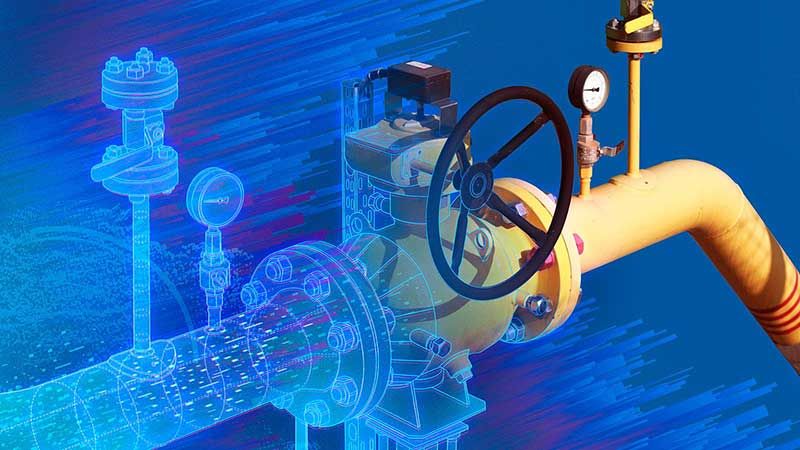
The growing world population brings with it an increasing demand for freshwater. As this demand rises, the importance of efficient water pipeline management becomes paramount to ensure a stable and sustainable water supply to urban areas, industries, and agriculture. In recent years, advancements in technology and data analytics have revolutionized water management practices. Embracing data-driven approaches has empowered water utilities and authorities to make well-informed decisions, optimize operations, minimize wastage, and proactively address potential challenges. With growing water scarcity and distribution losses, it is significant to address the issue with data-driven water pipeline management and its profound impact on the sustainability and resilience of the water industry.
The era of data-driven water pipeline management has brought transformative changes to the water industry. Leveraging technology and real-time data has empowered water utilities to make informed decisions, minimize wastage, and enhance operational efficiency. The following technological intervention could help in better pipeline management:
<>Smart Sensor Networks and Data Collection
The deployment of smart sensor networks is the foundation of data-driven water pipeline management. These sensors are strategically placed throughout the pipeline infrastructure to monitor various parameters, such as flow rates, pressure, temperature, and water quality. The data collected by these sensors is transmitted in real-time to a centralized control system, allowing operators to have a comprehensive view of the entire pipeline network's performance.
Water leakages and distribution losses are the most significant challenges faced by water utilities across the globe. The high rate of UFW in cities is the leading cause of significant water loss, costly repairs and financial burdens. With data-driven approaches, machine learning algorithms can be employed to analyze historical data and identify patterns indicative of leakages. Predictive analytics helps pinpoint potential weak points in the pipeline, enabling proactive maintenance before a major leak occurs.
Data-driven water pipeline management enables real-time monitoring by issuing alerts promptly to operators for any abnormal conditions. Whether it's a sudden drop in pressure or any deviation in water quality standards, immediate notifications empower decision-makers to take swift and remedial action thus minimizing the impact of potential disruptions to water supply.
Traditionally, pipeline maintenance was carried out based on scheduled routines or reactive responses after a failure. Data-driven solutions introduce predictive maintenance, which relies on historical and real-time data to assess the health of pipeline infrastructure. This approach optimizes maintenance efforts, reduces downtime, and extends the lifespan of the assets resulting in cost savings for the utility.
Understanding water consumption patterns is crucial for effective resource allocation. Data-driven models can analyze historical data to forecast future water demands accurately. Water utilities can then optimize their resource allocation and distribution strategies to efficiently meeting demands.
Data-driven water pipeline management also plays a vital role in ensuring water quality and compliance with regulations. Real-time data on water quality parameters, combined with analytics, allows operators to identify potential contamination events and take corrective actions promptly. Compliance reports can also be generated automatically, streamlining the reporting process for regulatory agencies.
Geographic Information Systems (GIS) integration with data-driven water pipeline management provides spatial visualization of the pipeline network. This visual representation aids in identifying spatial relationships, optimizing routing, and helps in planning new infrastructure projects.
Data-driven water pipeline management represents a transformative shift in the way water utilities and authorities manage their infrastructure. By harnessing the power of real-time data, predictive analytics, and smart sensor networks, the water industry can enhance operational efficiency, reduce costs, and ensure the sustainability of water resources. Embracing data-driven solutions not only leads to better decision-making but also strengthens the water industry's resilience in the face of an increasingly unpredictable future. With continued advancements in technology and analytics, the water industry can forge a path towards a more sustainable and water-secure future.
SPML Infra Limited is a prominent player in water, power, and infrastructure projects, demonstrating expertise in various water supply ventures. The company boasts an extensive portfolio of successful pipeline projects completed both in India and on the international stage, having laid over 10,000 kilometers of drinking water, wastewater, and bulk water supply irrigation pipelines. SPML Infra has demonstrated its capability to execute pipelines with diameters of up to 4000 mm, even in challenging terrain conditions. With a focus on technological advancements, the company remains poised to further enhance its capacities, allowing for the execution of large and intricate pipeline projects with expertise.